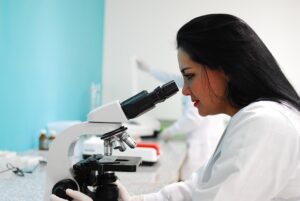In an interconnected scientific community, international standards for Laboratory Reports and Scientific Data are essential for global collaboration, data accuracy, and knowledge exchange. Skilled translation ensures effective communication among researchers worldwide, preserving data integrity and facilitating innovation. Advanced technologies and structured translation management maintain consistency, enabling seamless integration into research platforms and accelerating scientific progress.
In today’s globalized scientific landscape, meeting international application requirements with accurate and consistent laboratory reports and scientific data is paramount. As researchers collaborate across borders, understanding diverse regulatory standards becomes essential. This article explores the significance of translated laboratory reports and scientific data sharing, delving into key aspects like global report requirements, translation methodologies, accuracy assurance, integration with research platforms, and efficient translation management best practices.
- Understanding Global Requirements for Laboratory Reports
- The Role of Translation in Scientific Data Sharing
- Ensuring Accuracy and Consistency Across Languages
- Integrating Translated Data into Global Research Platforms
- Best Practices for Efficient Translation Management
Understanding Global Requirements for Laboratory Reports
In today’s globalized scientific landscape, understanding and meeting international standards for laboratory reports and scientific data is more crucial than ever. Researchers and institutions across borders must ensure their documentation adheres to consistent and comprehensive requirements. This is particularly important as collaboration and data sharing become essential components of scientific progress.
Global organizations like the International Organization for Standardization (ISO) play a pivotal role in establishing guidelines for laboratory reporting, focusing on elements such as data accuracy, presentation, and accessibility. These standards ensure that results are reproducible and reliable, fostering trust among scientists worldwide. By translating laboratory reports and making scientific data universally accessible, researchers can effectively collaborate, advance knowledge, and contribute to a global body of science.
The Role of Translation in Scientific Data Sharing
In today’s global scientific community, effective communication is key to advancing research. Translated laboratory reports and scientific data play a pivotal role in facilitating collaboration and knowledge exchange across borders. When researchers from different linguistic backgrounds share their findings, it opens doors to diverse perspectives and accelerates innovation.
Precision and accuracy are paramount in scientific documentation. Professional translation services ensure that complex laboratory results and methodologies are conveyed accurately in the target language. This seamless sharing of laboratory reports and scientific data promotes international research partnerships, enabling scientists from various countries to build upon one another’s work seamlessly.
Ensuring Accuracy and Consistency Across Languages
When dealing with translated laboratory reports and scientific data, maintaining accuracy and consistency across languages is paramount. This involves meticulous attention to detail during the translation process to ensure that critical information is preserved exactly as it was in the original document. Professional translators with expertise in scientific terminology are essential for this task. They not only understand the nuances of language but also have a deep knowledge of the specific domain, ensuring precise translations that convey the exact meaning and intent of the original data.
Consistency is another critical aspect. Scientific research often relies on reproducible results, and this continuity must be maintained across languages. This includes consistent use of units, terminology, and formatting to avoid any ambiguity or misinterpretation. Advanced translation tools and quality assurance processes can help verify these aspects, guaranteeing that translated laboratory reports and scientific data remain reliable and trustworthy, facilitating seamless communication and collaboration in a global research environment.
Integrating Translated Data into Global Research Platforms
In today’s globalized research landscape, where collaborations transcend borders, seamlessly integrating translated laboratory reports and scientific data into research platforms is paramount. This process facilitates open scientific communication, enabling researchers from diverse linguistic backgrounds to contribute and collaborate effectively. Advanced translation technologies play a pivotal role here, ensuring accurate and contextually relevant translations of complex scientific terminology.
Global research platforms can leverage these translated data resources to create inclusive environments, foster international partnerships, and accelerate scientific discovery. By removing language barriers, researchers can access a wealth of knowledge, compare findings, and build upon each other’s work, ultimately advancing our understanding of various scientific disciplines.
Best Practices for Efficient Translation Management
Maintaining accuracy and consistency is paramount when translating laboratory reports and scientific data. To ensure efficient translation management, organizations should adopt a structured approach. Firstly, establish a dedicated translation memory (TM) that houses industry-specific terminology to preserve consistency across translations. This TM should be regularly updated and accessed by all translators working on relevant documents.
Secondly, implement quality assurance processes through peer review and translation validation checks. These steps guarantee the accuracy of translated content, especially when dealing with complex scientific concepts. Leveraging specialized language service providers experienced in handling laboratory reports and scientific data is also beneficial. Their expertise ensures that technical details are conveyed accurately, preserving the integrity of the original research while meeting global application requirements.
Global collaboration in science and research heavily relies on effective communication, made possible by translating laboratory reports and scientific data. By understanding international standards, leveraging translation technologies, and adhering to strict accuracy guidelines, researchers can seamlessly integrate diverse linguistic inputs into global platforms. Efficient translation management practices ensure a smooth process, facilitating knowledge exchange and advancing scientific progress across borders.
